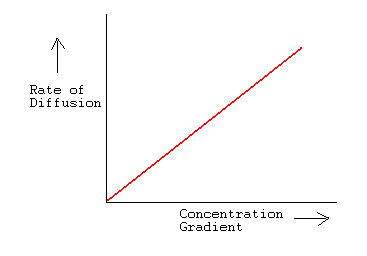Biology B2 Additional (Triple) Science
Pinned to
1465
108
3
No tags specified
|
|
Created by HeidiCrosbie
almost 10 years ago
|
|
Close
|
|
Created by HeidiCrosbie
almost 10 years ago
|
|

Biology - B2
Cell -> Tissue -> Organ -> Organ system -> Organism
How does the blood clot at/to form an open wound?
How is oxygen transported?
Name some parts of the heart
What are platelets?
What is double circulation?
Arteries carry blood away from the heart.
Veins carry blood towards the heart.
blood vessel carries blood.
Respiration is a chemical reaction, breathing is just air going in and out.
What part of the cell does respiration occur?
What is diffusion?
The steeper the concentration gradient the rate increases, therefore diffusion happens quicker.

What is osmosis?
How do glucose and oxygen reach the cells?
Why does exercise increase the heart rate?
Where does photosynthesis happen?
How are the chloroplasts (containing chlorophyll) and the stoma adaptations that help the plant to photosynthesise?
How is a root cell adapted to its function?
What is a limiting factor?
What is an example of a limiting factor?
What is a potomiter?
What is active transport?
What is active transport?
What is a xylem vessel?
What is a phloem vessel?
How do mineral salts get from the soil to the leaves of the plant?
Diffusion is how oxygen leaves a leaf.
Active transport goes against a concentration gradient, requires energy and is how minerals get into root hair cells.
Osmosis and diffusion is passive and goes from a high to a low concentration.
How many chromosomes are there in a normal human cell?
Chromosomes consists of long, coiled molecules of DNA. A gene is a section of DNA, which codes for a particular protein. A DNA molecule consists of 2 strands, which are coiled to form a double helix.
What is genetic engineering?
What is a diploid cell?
What is a haploid cell?
What happens in meiosis?
What are enzymes?
Enzymes are found in many parts of the body and act on substances called substrates.
What factors can affect enzyme action?
Aerobic respiration: Blood transports oxygen and food in the form glucose to the body's cells. Special enzymes in the cells cause the glucose and oxygen to react, and energy is released.
Anaerobic respiration: During vigorous exercise the lungs and blood cannot always deliver enough oxygen to the muscle cells to respire the available glucose aerobically and meet their energy requirements. When this happens the glucose can only be partly broken down, releasing a much smaller amount of energy.
Why do plants have broad, thin, flat leaves?
What is the word equation for photosynthesis?
What are the factors that affect photosynthesis?
Name one type of growth

 Hide known cards
Hide known cards